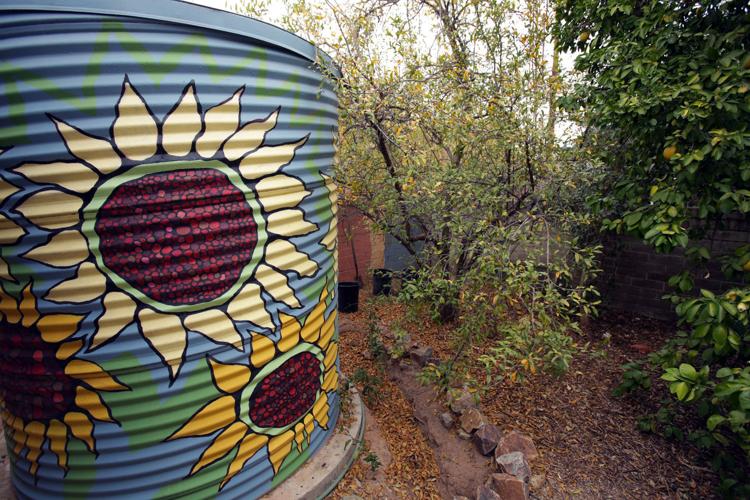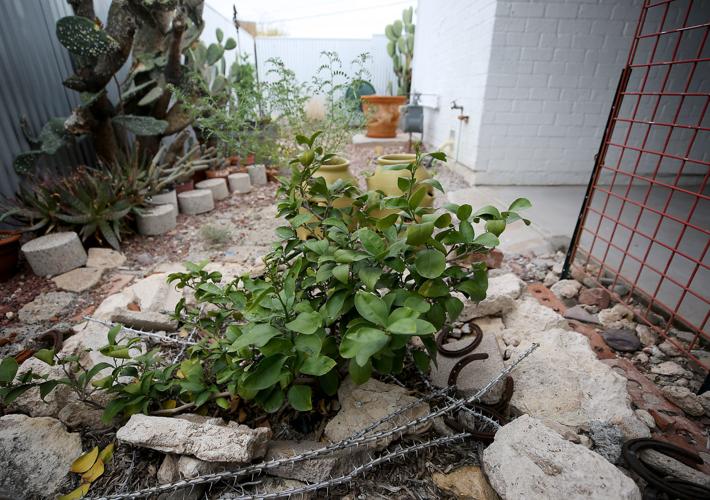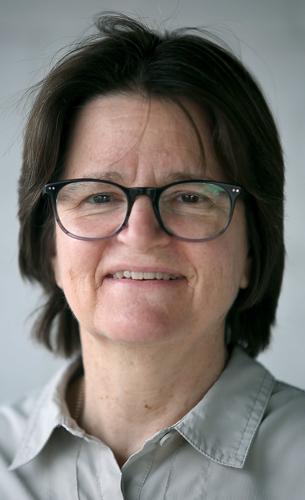Ask Martha Retallick or Richard Roati what they like best about the Green Living Co-op — a Watershed Management Group water-harvesting program — and they surprisingly give answers that have nothing to do with saving money.
“It’s meeting all these different people with a common purpose,” says Roati, who lives with his wife near Reid Park. “I’ve really met a lot of wonderful people that I still talk to.”
Retallick, who lives near Mansfield Park, says she likes that the well-run program helps others.
“They make it so you can learn something and do something helpful for the community,” she says. “I kept coming back because it was so organized.”
Lisa Shipek, Watershed Management’s executive director, says she’s not surprised by Roati’s and Retallick’s comments. While people may join the co-op to save money to install water-harvesting systems, they will continue because of the satisfaction of helping people and the environment.
“It’s really fulfilling to take part in that,” she says.
The Green Living Co-op is entering its second decade this year. Over the last 10 years, the program, which is run in the Tucson and, to a lesser extent, Phoenix areas, has completed 366 projects that installed 261 rain gardens and 92 collection tanks.
The co-op also has installed 79 greywater systems that divert used water in the home to outdoor gardens.
Watershed Management estimates that the projects harvest more than 5.1 million gallons of water a year.
The organization formed the co-op using what officials call a “barn-raising” model.
Co-op members earn hours as they help create projects at a member’s home. Another member can subsequently host a workshop, using those hours for discounts on some costs.
There are tasks other than hard labor available for people to earn hours. One does not need to be a co-op member to attend a workshop.
The projects last the better part of a day. The project manager, a Watershed Management employee, makes sure the work is done to standards and also teaches skills for the work.
The co-op wasn’t a program that Watershed Management set out to develop.
A group of University of Arizona students started the nonprofit organization in 2003 to help people live in harmony with the desert and eventually restore Tucson’s rivers.
Armed with grants, the group created workshops in which residents could help build rainwater-harvesting systems in public spaces. They would learn about the importance of harvesting water with hands-on work.
People started asking if they could have such a workshop at their home, Shipek recalls. “Interest in that was just really high.”
Today, Watershed Management has two to three workshops a month.
Roati and Retallick were among the first to host workshops and, over the years, continued to help build projects at other homes.
Through the co-op, Retallick had three earthworks projects done and a greywater system from the washing machine installed.
After 10 years, the mesquite in the basin is well above the roof line. The quail bush and feathery senna that get rainwater diverted from the roof to the fence are around 5 feet tall and reduce the temperature around the house. The greywater system irrigates fig, pomegranate and lemon trees, garbanzo beans and native grasses.
Two of the four rainwater-harvesting tanks on Roati’s property were installed by the co-op. He’s learned how to plumb and dig earthworks from his workshop participation, skills that have helped him create a food forest at his house.
Watershed Management is adding to its staff to whittle down the wait time for a workshop, says Emma Stahl-Wert, a Sonoran landscape specialist with the organization.
There’s also a push to expand the program into other areas of the city — most workshops are done at midtown homes, says Shipek — and provide ways to make harvesting water affordable to more people.
Workshops in public spaces continue as funding becomes available. But the co-op, as a self-funding program, will stay busy, she predicts. Watershed Management is committed to it.
“I see the co-op as the fundamental backbone of our organization,” Shipek says. “The whole reason we started the co-op is because the community asked for it.”








